Most discussion about homeopathic medicine centres on whether or not it works. Strangely there is almost no discussion about one of its main ingredients, alcohol (ethanol).
Following the tragic death of my two cats, strongly correlated to alcohol-poisoning from homeopathic medicines, I have decided to write a note drawing attention to this ingredient, and warning animal lovers about its toxicity for dogs and cats.
Please note that my purpose is NOT to vilify or blame any individual/s. I am solely to blame for making disastrously wrong decisions about my pets’ treatment.
The topics covered:
1. Homeopathic medicines have extremely high alcohol content, between 20% and 90%, not a small amount
2. The science: Dogs, cats and many other animals cannot metabolise alcohol at all
3. Scientific study: Ethanol in homeopathic dilutions is toxic for laboratory animals
4. Some veterinary science and animal welfare sources listing alcohol as a poison for dogs and cats
5. These homeopathic and natural remedy manufacturers unambiguously state that alcohol-based medicines are harmful to animals
6. The World Health Organization on the ethanol content in homeopathy (in the context of human use)
7. There have been just a few media stories about alcohol in homeopathy (in the context of human use, not veterinary)
8. So why are these homeopathy practitioners claiming that homeopathy is safe for animals?
9. What solutions would I like to see?
10. My experience with homeopathy and animals, in detail
THE BACKGROUND
In February and April this year I made the disastrous decision to give my two cats homeopathic medicine to arrest their early-stage, chronic kidney disease. The condition was being well-managed with prescription food and fluid therapy, and there was no need for anything else. However in my eagerness to leave no stone unturned and ‘try everything,’ and above all believing homeopathy to be harmless, I ended up pushing my poor cats into complete organ failure, too far in to slow down or ever return.
Their rapid decline and death very strongly correlated to the homeopathic medicines they had been given.
Here’s why the correlation is so strong:
- Both cats developed exactly the same condition, symptoms and deterioration simultaneously, after being given homeopathic remedies, on two occasions
- Their decline started very soon after the medication was given
- Homeopathic medicines are known to contain a high percentage of alcohol, a well-documented poison for cats and dogs
- No other toxic new substances had been given to them during that time, nor were they exposed to any toxic substances in the environment
I now believe that their chronic kidney disease might have been caused by homeopathy in the first place. While the small doses didn’t cause any immediate visible effect, the cumulative toxicity must have harmed them.
You can read a complete account of our experience in the last section ‘My experience with homeopathy and animals, in detail.’
It is highly probable that many other cats and dogs dosed with homeopathy have suffered the same fate. However the owners almost definitely believe the disease was caused by something else. This is because of the widespread assumption that homeopathy is safe and harmless.
Use of homeopathy for animals is quite a common practice here. In fact it has been a growing trend in my city (Mumbai, India) for the last two decades. There are a few homeopathy practitioners who regularly treat animals, as well as certified veterinarians who use homeopathic medicines frequently.
Years ago I did in fact ask a homeopathic practitioner about the alcohol content. I was told ‘the amount of alcohol in homeopathy is too little to harm animals.’ The danger of cumulative toxicity was not mentioned at all. For reasons I just can’t understand, I blindly accepted this. I am normally sceptical but somehow my brain switched off.
In grief and rage as my cats wasted away, I started looking up and reading whatever I could find on the topic of alcohol toxicity in animals, and the alcohol content in homeopathy. I cannot forgive myself for not doing this years ago.
I am now sharing all the information I should have looked for earlier, in the hope that at least a few people will stop using alcohol-based medication for animals. In telling my story I have had to publicly reveal how stupid and gullible I was. This is okay; I’ll survive. I would have no self-respect left if I kept this information to myself just to avoid embarrassment.
I will not name any individuals in this post or in further communication, if any. The alternative medicine practitioner referred to is very well-intentioned, sincerely wants to help animals, and acted out of complete ignorance of canine and feline physiology. I remain grateful for the person’s many kindnesses to me and my family members. The certified veterinarians who prescribe homoeopathy are also well-intentioned but their use of alcohol-based medicines is much more surprising, given that they all have the training and qualifications to treat animals.
Possibly a few readers will want to comment, criticise or otherwise discuss the note with me. The last few months have been extremely difficult for me and I do not want to interact with anybody, so I’ve written everything in the greatest possible detail here. However if anyone still wants to ask anything, I can be contacted on email at rajashree.khalap@gmail.com My humble request is, please don’t try to discuss topics already covered in this note.
- HOMEOPATHIC MEDICINES HAVE EXTREMELY HIGH ALCOHOL CONTENT, NOT A SMALL AMOUNT
Let’s look at the labels on homoeopathic dilutions from three leading and widely used brands. I’ve pointed out the alcohol content with white arrows. In all three brands the content is 90%.
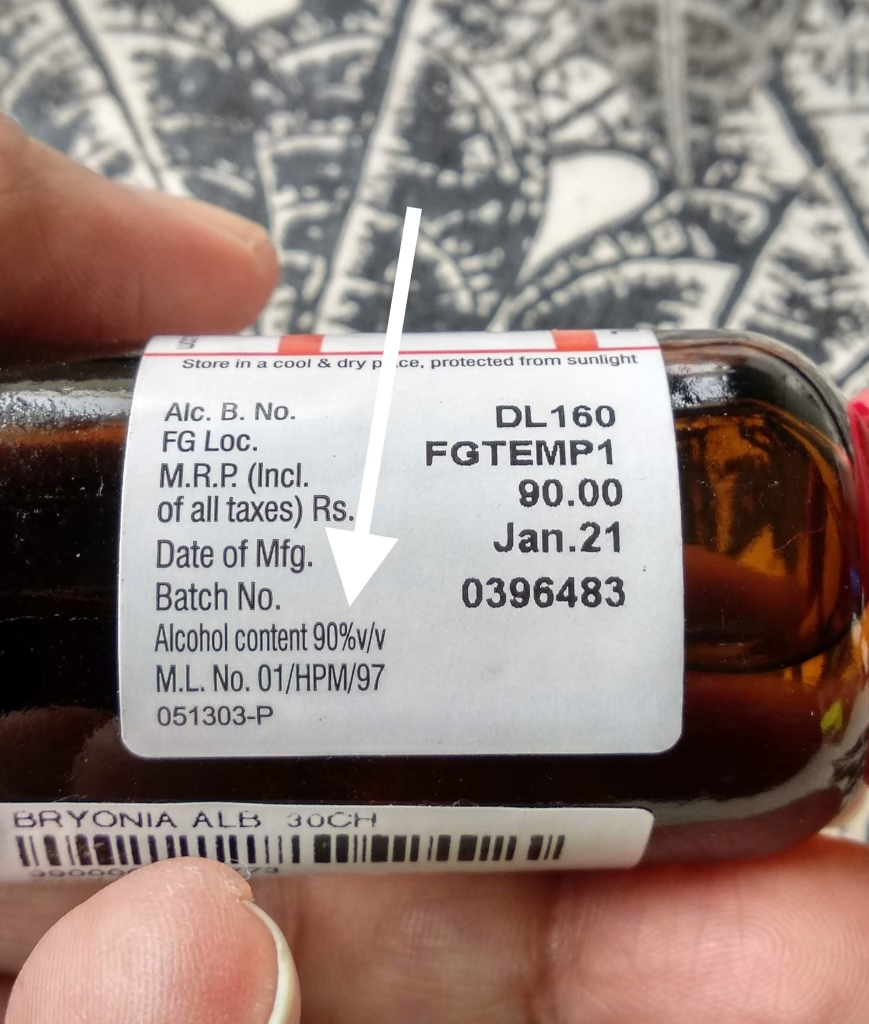
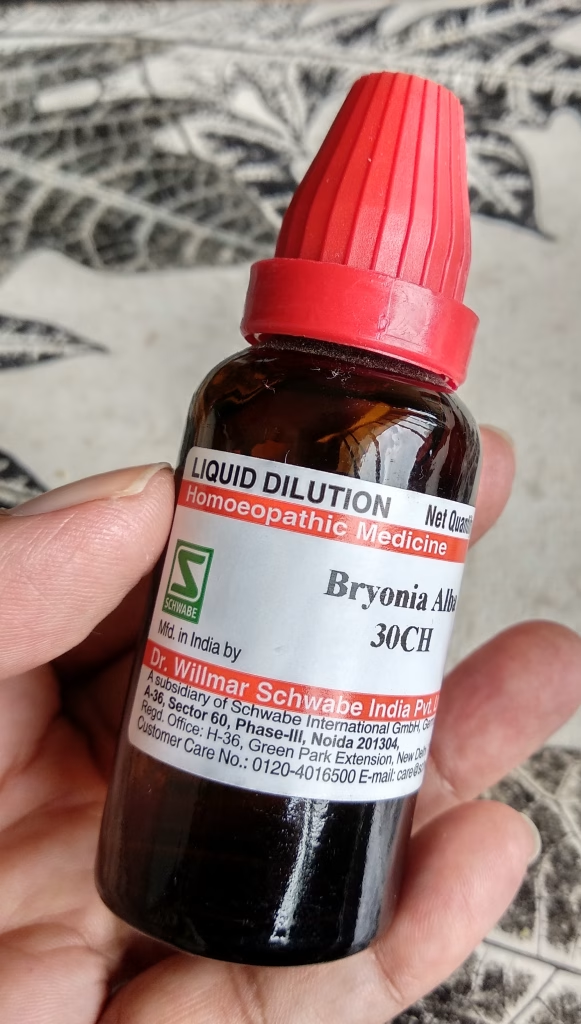
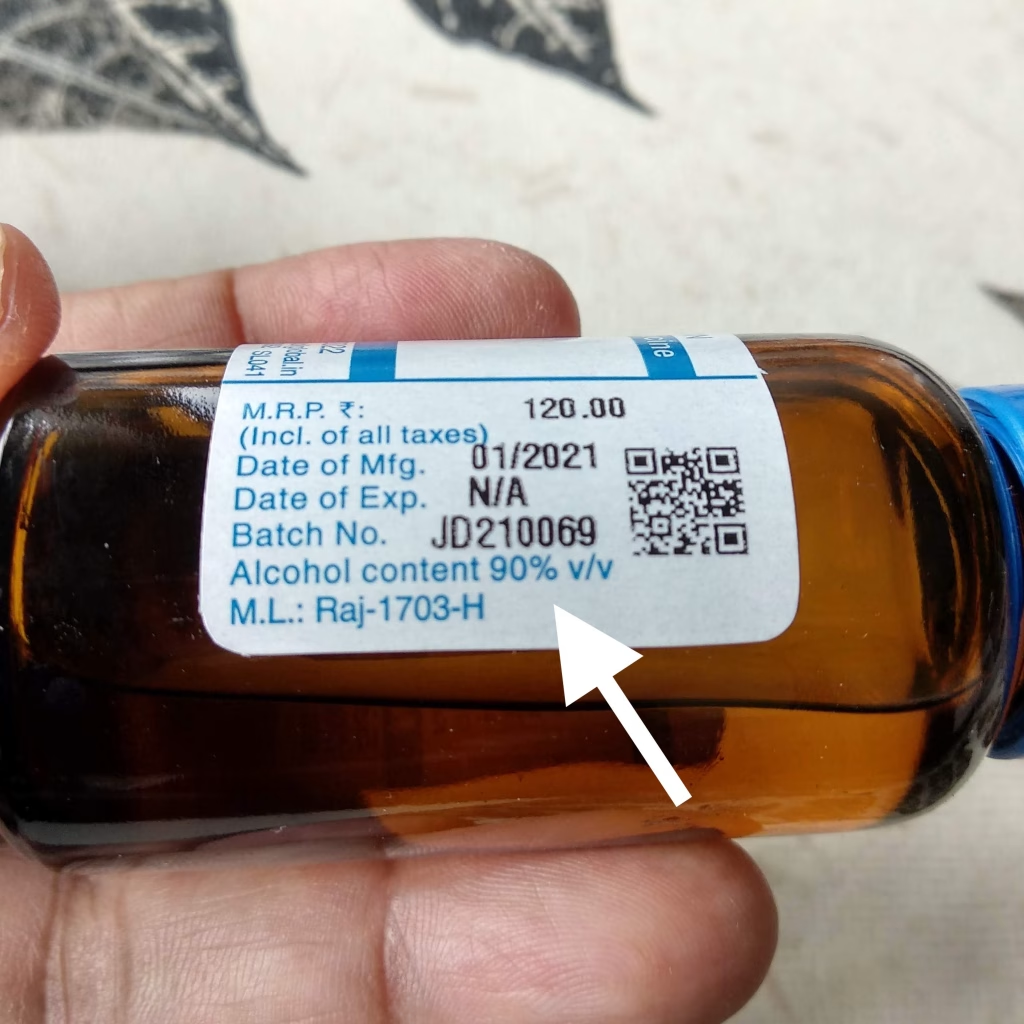
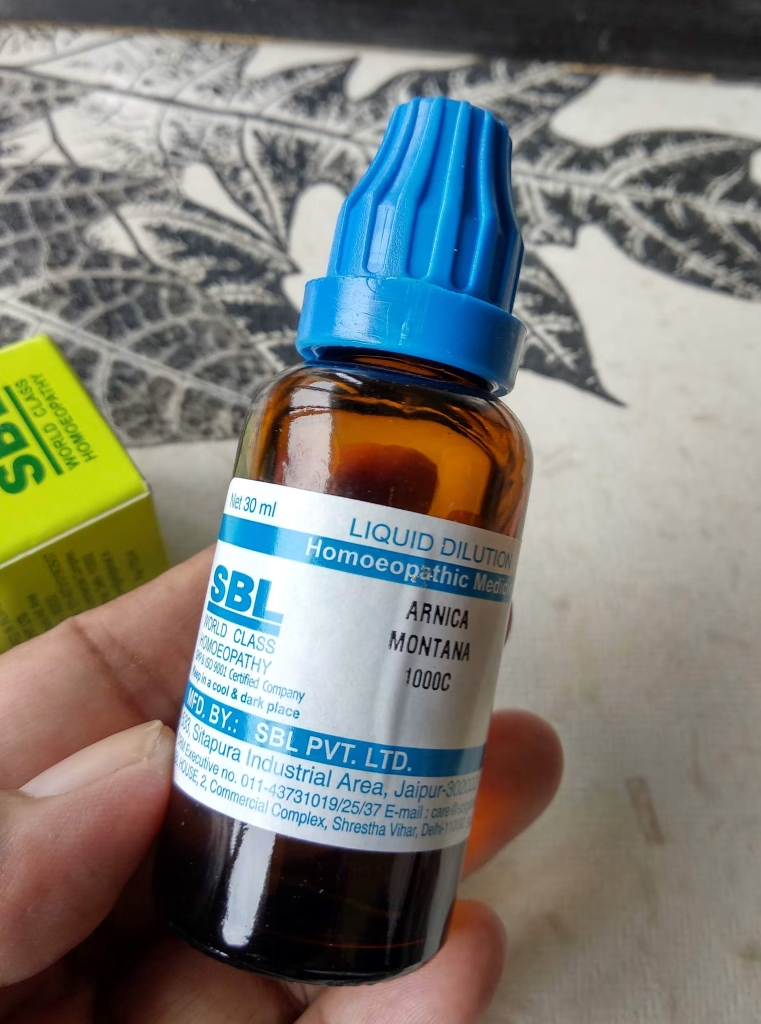
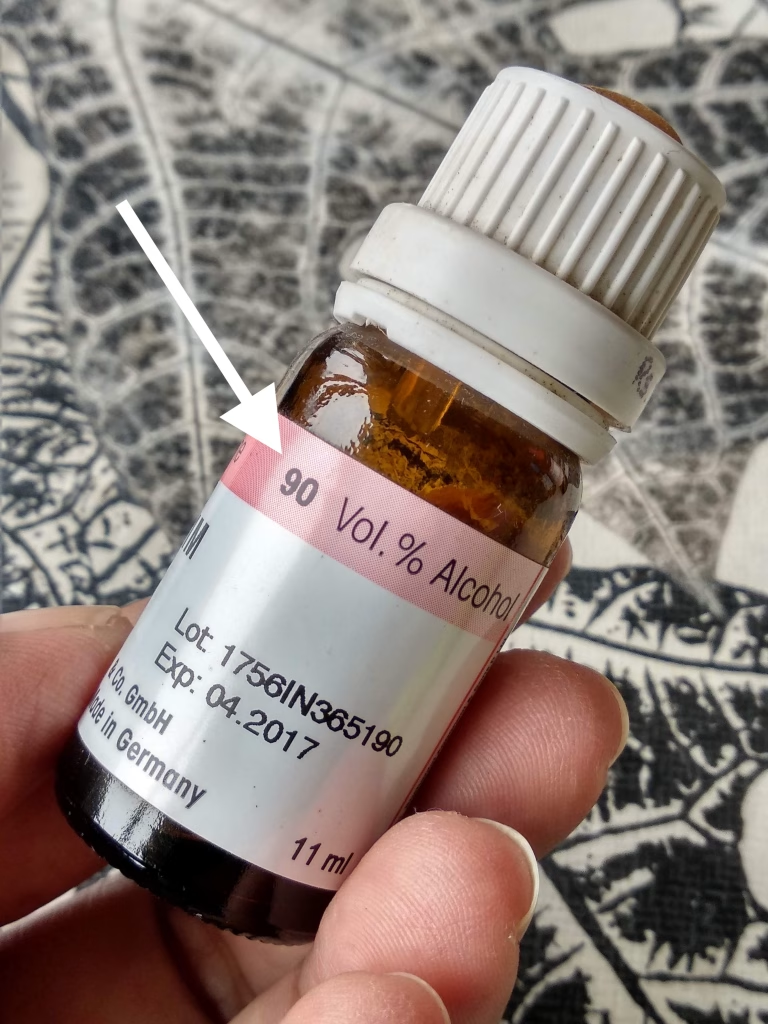
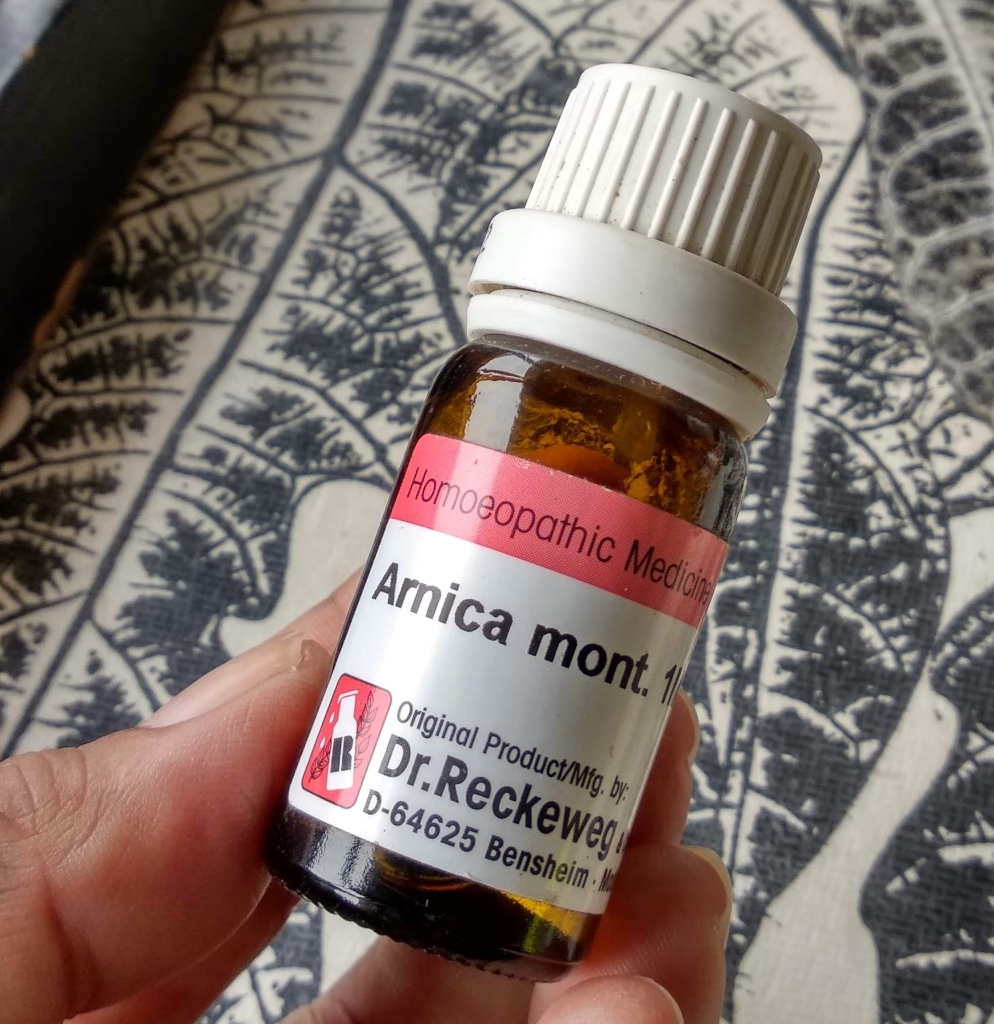
By no standards that I know of can 90% of anything be considered ‘a small amount.’
It is interesting that in the following sections the much lower percentage of 20% ethanol is described as being of concern.
A bottle of sugar pills from a homeopathic doctor contains between 4 drops and 10 drops of this liquid (my personal observation in Mumbai, India). This is not ‘too little to harm animals.’ Even one drop would be harmful.
Dogs and cats, along with other mammals in the group ‘Carnivora,’ do not have the genetic adaptation to metabolise alcohol (see Section 2). Even a small quantity is harmful to them. When small quantities are given, you may not see symptoms of poisoning for a long time, but it’s highly likely their kidneys or liver are getting harmed through cumulative toxicity. Chronic kidney disease is well-known as a top ‘silent killer’ of cats and dogs, which means much of the damage occurs without any visible symptoms. Your pet might already have been in organ failure for years before you notice any change in behaviour or appearance.
Consider this: Would you give 4 drops of hard liquor to your cat or dog every fortnight? Or even one drop? What about 4 drops of chocolate, another known toxin? Or rat poison?
Putting a homeopathic label on a bottle of alcohol does not make it safe. I cannot find any data proving that the alcohol content in homeopathy is somehow detoxified and rendered harmless to animals. The assurances of safety given by homeopathic practitioners seem to be based only on anecdotal evidence.
Also, there is no antidote for alcohol.
I would imagine that real scientific evidence would require a large-scale, long-term study, following and monitoring a large number of cats and dogs regularly dosed with homeopathy, through their entire lifetimes. This would be complicated, cumbersome, unethical and unnecessary. Why would we need such a study when alcohol is already well documented as a poison for these species?
2. THE SCIENCE: DOGS, CATS AND MANY OTHER ANIMALS CANNOT METABOLISE ALCOHOL AT ALL
Mammals of the carnivore and herbivore groups do not have a functioning version of the gene ADH7 that encodes for the enzyme that metabolises alcohol (alcohol dehydrogenase class IV.) Carnivores include domestic dogs and cats. Only mammals with a diet of fruit and nectar evolved the ability to metabolise alcohol, because of exposure to natural ethanol in fermented fruit and nectar. These mammals include primates (chimpanzees, gorillas, bonobos, humans) and fruit and nectar-feeding bats. Read more in this interesting study of the variation in ethanol metabolism across mammals:
“Genetic evidence of widespread variation in ethanol metabolism among mammals: revisiting the ‘myth’ of natural intoxication” – Mareike C. Janiak, Swellan L. Pinto, Gwen Duytschaever, Matthew A. Carrigan and Amanda D. Melin, Published: 29 April 2020
https://royalsocietypublishing.org/doi/10.1098/rsbl.2020.0070
This line is hugely relevant: ’It is a fallacy to assume that other animals share our metabolic adaptations, rather than taking into consideration each species’ unique physiology.’
Take a look at Figure 1 inside the paper: ‘Protein-altering changes in ADH7 along with evolutionary relationships and diets of species included in our analyses.’
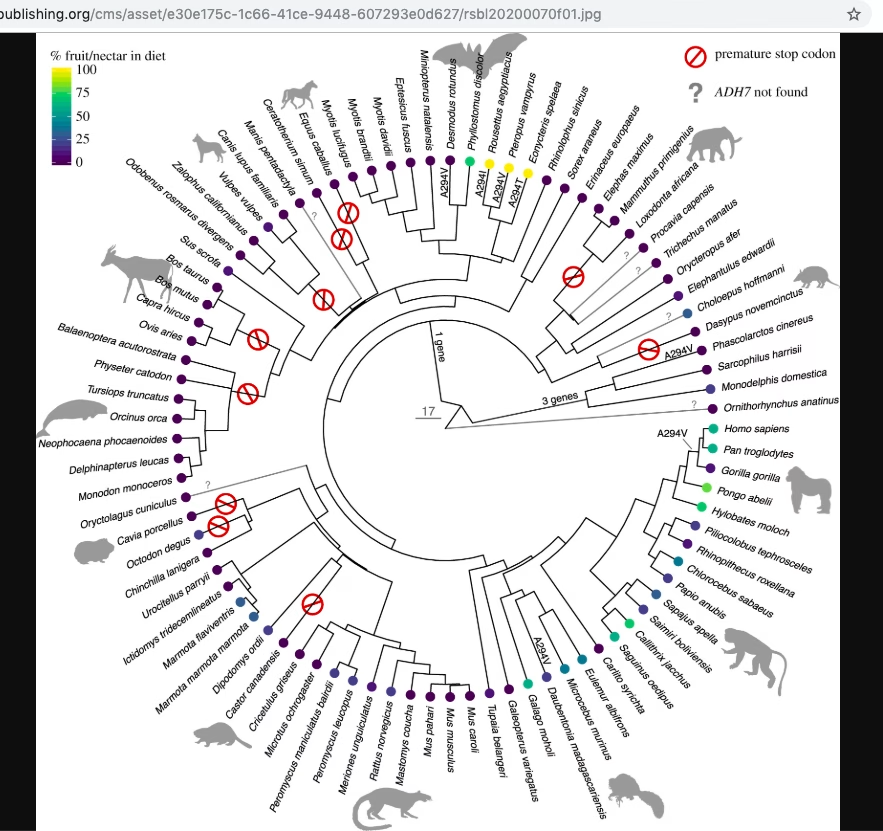
This is a news story about this study, in ‘New Scientist’ – ‘Analysis of 85 animals reveals which are best at holding their alcohol’ https://www.newscientist.com/article/2242002-analysis-of-85-animals-reveals-which-are-best-at-holding-their-alcohol/
3. A SCIENTIFIC STUDY: ETHANOL IN HOMEOPATHIC DILUTIONS IS TOXIC FOR LABORATORY ANIMALS
The toxicity of ethanol for laboratory animals is clearly mentioned in the abstract of this paper discussing the role of ethanol in homeopathic dilutions: ‘Homeopathic Dilutions, Hahnemann Principles, and the Solvent Issue: Must We Address Ethanol as a “Homeopathic” or a “Chemical” Issue?’
I quote: ‘Homeopathic remedies usually contain a significant amount of ethanol as a co-solvent with water, a pharmaceutical formulation that may raise some concern when remedies are tested in vitro or in laboratory animals, due to the assessed toxicity of ethanol on cell cultures and organisms.’
‘While the content of ethanol in a homeopathic remedy should be as low as 20% v/v, which is a molar fraction able to catalyze the formation of nanobubbles in a dynamized alcohol-water dilution, this amount raises come ncern about ethanol toxicology in the experimental research with laboratory animals or in vitro.’
Chirumbolo S, Bjørklund G. Homeopathic Dilutions, Hahnemann Principles, and the Solvent Issue: Must We Address Ethanol as a “Homeopathic” or a “Chemical” Issue? Homeopathy. 2018 Feb;107(1):40-44. doi: 10.1055/s-0037-1608898. Epub 2017 Dec 28. PMID: 29528477 –
https://pubmed.ncbi.nlm.nih.gov/29528477
4. SOME VETERINARY SCIENCE AND ANIMAL WELFARE SOURCES LISTING ALCOHOL AS A POISON FOR DOGS AND CATS
There are many sources, but due to space restraints I am listing just a few:
i. ‘Dogs cannot tolerate alcohol, even in small amounts.’
Kovalkovičová, Natália, Šutiaková, Irena, Pistl, Juraj and Šutiak, Václav. “Some food toxic for pets,” Interdisciplinary Toxicology, vol.2, no.3, 2009, pp.169-176.
https://doi.org/10.2478/v10102-009-0012-4
https://www.ncbi.nlm.nih.gov/pmc/articles/PMC2984110
ii. ‘Under no circumstances should your pet be given any alcohol.’
ASPCA – Animal Poison Control – ‘People foods to avoid feeding your pets’
https://www.aspca.org/pet-care/animal-poison-control/people-foods-avoid-feeding-your-pets
iii. MSD Veterinary Manual has a chapter on alcohol toxicosis:
https://www.msdvetmanual.com/toxicology/household-hazards/alcohols
5. THESE HOMEOPATHIC AND NATURAL REMEDY MANUFACTURERS UNAMBIGUOUSLY STATE THAT ALCOHOL-BASED MEDICINES ARE HARMFUL TO ANIMALS
i. The FAQ of Nelsons, official manufacturer of the widely used Bach’s ‘Rescue Remedy’ says ‘Our Rescue® range is formulated for human use and should not be given to animals.’ They manufacture a range specifically for animals: ‘Rescue Remedy® Pet is alcohol free and specially formulated for animals including reptiles, birds, cats, dogs, horses and rabbits.’
https://www.rescueremedy.com/en-us/explore/faqs/can-i-give-rescue-products-to-animals
The packaging of Rescue Remedy Pet states that it’s veterinarian-recommended and alcohol-free https://www.amazon.in/Bach-Rescue-Remedy-Pet-20/dp/B00JU3CZRY
Strangely, the Bach Centre, the original manufacturer, while offering the alcohol-free range as an option, insist that the original alcohol-based remedies are perfectly safe; however they do at least stipulate that the remedies must be diluted ‘to minimise the alcohol content to trace levels.’ https://www.bachcentre.com/en/remedies/selecting-remedies/bach-remedies-and-animals/
ii. Natural Wonder Pets, manufacturer of natural alcohol-free herbal remedies for animals, has this to say: ‘Over time, excessive alcohol has been shown to cause damage to the liver, kidneys and nervous system.’
‘Even if a dog or cat doesn’t die from the acute effects of alcohol poisoning, the toxin can still harm their kidneys and liver, reducing quality of life over time.’
‘How Harmful Is Alcohol To Dogs and Cats?’ by Gary Le Mon,
https://natural-wonder-pets.com/how-harmful-is-alcohol-to-dogs-and-cats
iii. Wapiti Labs, manufacturer of natural medicines, offers alcohol-free remedies for cats. Read their article ‘Can cats ingest alcohol?’
6. WORLD HEALTH ORGANISATION ON THE ETHANOL CONTENT IN HOMEOPATHY (in connection with human use)
’Safety issues in the preparation of homeopathic medicines’ – World Health Organisation, 2009 (ISBN 978 92 4 159884 2)
https://apps.who.int/iris/handle/10665/44238?show=full
‘in homeopathy, small quantities can be used several times a day and such homeopathic medicines may contain high levels of ethanol. In this context, adequate information including warnings, contraindications and adoption of monographs is mandatory when remedies are prescribed to children, women who are pregnant or breastfeeding, or patients with relevant medical histories including liver failure, brain injury, seizures or alcoholism.’
7. THERE HAVE BEEN JUST A FEW MEDIA STORIES ABOUT ALCOHOL IN HOMEOPATHY (in connection with human use, not veterinary)
- ’Homeopathy Is a Bitter Sugar Pill’ by Yvette D’Entremont, October 27, 2015. This includes an interesting video demonstration. https://slate.com/technology/2015/10/homeopathy-contains-alcohol-and-can-be-sold-to-minors.html
ii. ‘Surprise Ingredient in CVS Medicine’ – NBC LA, October 27, 2015, a news report connected with the article above.
https://web.archive.org/web/20230609122957if_/https://www.nbclosangeles.com/news/local/i-team-store-alcohol-purchase-drug-regulations/1999502/embed/#?secret=5JlUb5ZeIq
The alcohol content in homeopathic medicines is so high that they have been consumed as a substitute for liquor in at least two recorded incidents in India:
iii. ‘At least 9 dead after consuming homeopathy medicine as substitute for liquor in Chhattisgarh’ – India Today, May 7, 2021
iv. ‘Homeopathy drug had 90% pure methanol’ – The Times of India, January 26, 2017.
A report of 6 deaths in Surat, caused by drinking liquor that contained homeopathic medicine.
8. SO WHY ARE THESE HOMEOPATHY PRACTITIONERS CLAIMING THAT HOMEOPATHY IS SAFE FOR ANIMALS??
I can’t find any scientific data proving that alcohol-based homeopathy is safe for dogs and cats. Because there doesn’t seem to be any.
And yet, without citing any study to support the claim, here is the American Association of Homeopathic Pharmacists stating that ‘Homeopathy is very safe to use with animals’
ii. Here’s a holistic veterinarian who promotes homeopathy for animals, but warns that some animals might ‘be sensitive’ to the alcohol: ‘Liquid remedies are preserved with alcohol and some animals, especially cats, can be sensitive to the odor or taste. To remove the alcohol you can drop the dosage into a small vial or shot glass and let it sit out for 15-20 minutes for the alcohol to evaporate.’
‘Only Natural Pet’ – ‘Understanding homeopathy for dogs and cats’ by Dr. Jean Hofve, holistic veterinarian
https://www.onlynaturalpet.com/blogs/holistic-healthcare-library/homeopathy-for-pet-health
9. WHAT SOLUTIONS WOULD I LIKE TO SEE?
- Homeopathic and all alternative medicine practitioners who want to treat animals should procure or create a range of medicines that is alcohol-free. Only alcohol-free medicines should be prescribed for animals.
- There should be stricter regulation of all alternative medical practitioners and pharmacists. Why is it legal to sell medicines containing so much alcohol?
- Even for human practice, alternative medicine practitioners should put printed labels on all medicine packets and bottles distributed from their clinics, stating the alcohol content.
- Veterinarians should stop using alcohol-based homeopathic remedies for dogs, cats and other animals that can’t process alcohol.
- The Prevention of Cruelty to Animals Act (PCA Act, 1960) Section 11 (c), concerns feeding harmful substances to animals, and should be widely publicised. Under this clause isn’t dosing animals with alcohol a violation of our animal cruelty laws?
I am well aware that none of these changes may ever take place. Here is a gloomy but likely scenario.
After reading my note, many people will continue to give homeopathy to their animals.
Because though the risks are real and high, they are unseen. And the mind-set of flat-earth believers is more common than we realise.
‘The earth looks flat as far as I can see, so it must really be flat.’
‘My cat/dog looks perfectly healthy to me so the kidneys and liver must be fine.’
Many have deep-rooted fears about the ‘toxicity of allopathy and chemicals,’ often engendered by alternative medicine practitioners, or strengthened by side-effects caused by some modern medicines.
But for most people I believe that convenience will be the deciding factor. Homeopathy is undeniably convenient in many ways. The medicines can be purchased without prescriptions; they may cost less than modern medicine; administering sugar pills to animals is very easy compared to unpleasant-tasting pharmacological syrups and tablets.
All this will outweigh the risks for many people. Haven’t we often observed that a convenient falsehood is more readily accepted than an inconvenient fact? At the end of the day, we the humans won’t pay the price. People will weep for their pets for a while, blame their death on something or other, and move on.
But I’m sincerely hoping at least a few people will have the intelligence to read through and understand everything I’ve put down here. So this won’t all have been a waste.
10. MY EXPERIENCE WITH HOMEOPATHY AND ANIMALS, IN DETAIL
In the 1990s the veterinarian I consulted used homeopathic medicines very frequently in her practice. When my pet kitten suddenly got hind leg paralysis after a spine injury, this person and two other veterinarians advised me to have him euthanised. As a last resort, the vet referred me to a homeopathic practitioner. I was open to trying anything and everything that might save my pet.
I was always a paranoid pet owner and I did ask about the alcohol. I was told ‘it was too little to cause any harm.’ Since a certified, experienced and reputed veterinarian was using and recommending homeopathy, and a trusted alternative medicine practitioner claimed it was safe, I blindly believed this and didn’t think about it again.
My kitten recovered his mobility completely, which led me to consult the homeopath frequently over the following years.
This note is not about the popular question of ‘whether or not homeopathy works.’ People have asked whether I ‘believe’ or ‘disbelieve’ in homeopathy. My answer today is an emphatic ‘No.’ But back then I had had little experience of homeopathy and I had no knowledge about it, since my family never consulted alternative medicine practitioners. I had no opinion about it at all, except the vague impression that it might not work but was harmless at worst. The claims about dilution I found incomprehensible, but I didn’t spend any time thinking about it. Over the following years I felt that about 35% of ailments seemed to get cured, including quite serious ones such as loss of mobility and respiratory problems.
However, going over each of the ‘success stories,’ what stands out is that in every single case homeopathy was not the only therapy being used: it was one of several therapies. For instance, in the case of my dog Lalee’s severe lung congestion, I used steam inhalation, an expectorant syrup (not homeopathic,) warm fomentation, and infrared light, along with the homeopathic product. And in all the mobility cases Vitamin B12 was being routinely given. Whereas all the cases that were only given homeopathy ended in failure (usually death). The contribution of homeopathy in all the ‘success stories’ might well have been imaginary. And in the long term I would have to say there were zero success stories, because all the while my pets were being poisoned.
In the late 1990s, all my six cats went into chronic kidney failure simultaneously. We felt it must have been caused by incorrect medication (unsuitable for cats) that had been given by a vet. All my cats died in a few months in spite of fluid therapy. They had been given homeopathy right through their illness.
My cats Tabbyrani (born in December 2003) and MiniPini (born in April 2004) were given homeopathic medicine a few times over 17 years. Tabbyrani about four times, MiniPini six or seven times. After my earlier experience I got both these cats tested for liver and kidney function at least once a year. MiniPini’s blood reports showed borderline renal failure at the age of 1 year; Tabbyrani at the age of 7 years. By ‘borderline’ I mean that their creatinine, the main indicator of renal function, was 2.
This is not a big deal nowadays. With good quality prescription food (which induced them to drink lots of water) they lived with no symptoms whatsoever till the age of 17 years. I started consulting an excellent veterinarian some years ago, and I no longer consulted the homeopathic practitioner. However, in 2020 I did give both my cats homeopathy. MiniPini for a gum tumour, which due to her age our vet was reluctant to surgically remove. Tabbyrani for a urine infection, for which she was also treated with antibiotics. Tabby’s creatinine went up to 3.2, which our vet had prepared me for. It was safely brought down with subcutaneous fluids three times a month.
In January 2021, MiniPini’s creatinine was 2.5; Tabbyrani’s was 2.8. Both were in stage 1 renal failure, but both were in great condition and eating well, with no symptoms.
In February 2021 I had the terrible idea of asking the homeopathic practitioner for some medicine to help reduce their creatinine. On the homeopath’s prescription I bought liquid medicine from a homeopathic pharmacy. I was uncomfortable about the alcohol, so I diluted it a lot: just one drop of the medicine in half a cup of water. From this solution I gave my cats one teaspoon each, twice a day, over several days.
By March 2021, both cats had completely stopped eating. Blood reports showed that their creatinine had skyrocketed: Mini’s was 5.8, Tabby’s was 4.5.
My vet, and the vets at the emergency clinic I rushed to, all diagnosed the cause as toxicity. So did other vets who were consulted.
The only new substance they had been given was the homeopathic medicine, so even at this point the correlation seemed very clear. When I asked the homeopath about this disaster, I was told the cause could be that I had bought ‘loose medicines with added alcohol instead of a sealed bottle.’ So I vaguely assumed that there must be some ‘safe’ level of alcohol that had been exceeded. Despite the horrifying blood reports, I took a fresh lot of homeopathic medicine directly from the practitioner’s clinic in mid-April, this time in the form of sugar pills. Looking back I am aghast at my stupidity.
Both pill bottles reeked of alcohol, and again I was very uneasy, but sadly not uneasy enough. I poured the pills into a bowl and kept it open for a few hours, hoping the alcohol would evaporate, and then I started dosing my cats.
They now deteriorated literally overnight. A few days later Tabbyrani’s creatinine had crossed 9, and Mini’s was 7.8. Mini had earlier improved marginally with phosphate binders and fluids, but after this neither could be stabilised let alone cured. Poor Tabby died within ten days. Mini, always more resilient, lingered on for two months but finally passed away. I don’t want to dwell on the symptoms, but they suffered terribly, with muscles wasting, complete loss of muscle strength, and finally uraemia.
The homeopathic practitioner’s response was very disappointing. When I said my cats had been killed by alcohol poisoning, the response was: ‘Do you think just a few drops could have caused this?’ ‘Your cats were given antibiotics.’ (Actually only Tabby had been given antibiotics, over a year ago). When I said homeopathic medicines had caused alcohol poisoning and should not be given to animals, the response was ‘I think it’s very debatable.’
Some people have told me ‘your cats were old,’ as if that makes it all better. Yes they were old, but it was reasonable to expect they would live happily for at least two more years, declining gradually. This is not an uncommon lifespan nowadays. And in any case, at any age, my cats did not deserve to be poisoned.
Incidentally, our dog Kimaya had also been given homeopathy a few times over 12 years. This year in March her creatinine was 2.3 (stage 1 kidney failure). While I cannot clearly correlate this to homeopathy as I could in the case of my cats, it does seem a likely cause. All other medication she had been given in recent years were prescribed by our highly competent veterinarian, and proven suitable for veterinary use. The only proven poison she’d ever been given was alcohol, via homeopathy.
I sincerely hope this will be an eye-opener for other pet owners and animal carers, not to mention the veterinarians who use homeopathy for their patients. It’s too late to save my poor cats, but other owners and animal rescuers and carers reading this are now informed, to the best of my ability.
Our animals trust us to do the right thing for them. At the very least we should not poison them. My poor innocent cats suffered and died because of my stupidity in blindly trusting people. Please don’t let your pets suffer the same way.
Thank you for reading!
Rajashree Khalap
Mumbai, August 2021
Quick FAQs
Is alcohol dangerous for pets?
Yes, even small amounts of alcohol can be toxic for dogs and cats, affecting their nervous system and organs.
Why do homeopathic medicines contain alcohol?
Alcohol is often used as a preservative or solvent in liquid homeopathic formulations.
What should I do if my pet accidentally ingests homeopathic medicine?
Contact your veterinarian or the nearest animal poison control center immediately.
